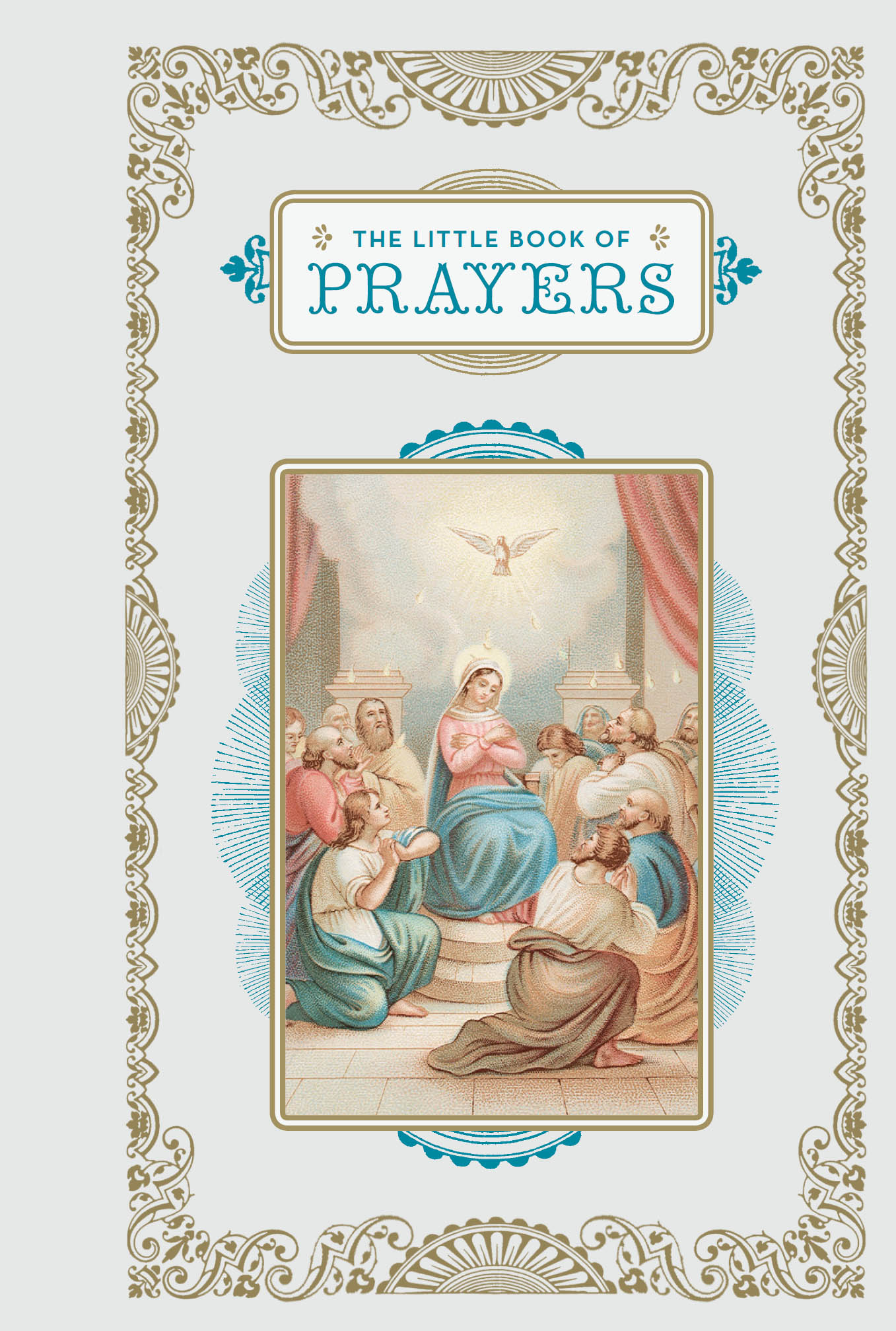
 First published in the United States of America in 2018
First published in the United States of America in 2018
by Chronicle Books LLC.
First published in France in 2016 by ditions du ChneHachette Livre as Le Petit Livre des Prires. Text copyright 2016 by ditions du ChneHachette Livre.
All rights reserved. No part of this book may be reproduced in any form without written permission from the publisher. ISBN 978-1-4521-6331-4 (epub, mobi) Library of Congress Cataloging-in-Publication data available. ISBN 978-1-4521-6330-7 (hc) Cover design by Lizzie Vaughan
Typeset by Howie Severson
Translated by Deborah Bruce-Hostler All reproductions in this book are from the private collection of ditions du Chne, except Fototeca/Leemage. Chronicle Books LLC
680 Second Street
San Francisco, California 94107
www.chroniclebooks.com
CONTENTS



PRAYER: TO TALK TO GOD

For believers, prayer is a way to be in intimate communication with God, to express gratitude, joy, and sorrow.
When one prays to God, one can reveal ones heart and ask for help and direction. Thus prayer is the expression of a living relationship that the believer cultivates with God, a way to strengthen faith and inner peace. Jesus and Prayer Christians learned their oldest forms of prayer from Jesus. The Gospels record three kinds of prayer uttered by Christ himself; each is characterized by simplicity, sincerity, and total surrender to God. Jesus offered prayers to the glory of God. Shortly before his sacrifice, he prayed in the Garden of Gethsemane, where he expressed his longing that his Father would take away the chalice of his torture to come, yet he prayed submitting himself to divine will.
On the Cross, he asked God to forgive his executioners. These three facets of the life of Christ became the foundation for all Christian prayers: prayers of thanks and gratitude, those of trust and acceptance, and prayers of intercession for others, or asking for forgiveness for them. And it is to Jesus that we owe the first among Christian prayers, the Our Father. Jesus turned to prayer before every deep decision, such as when he chose the twelve Apostles. The Gospel tells that he withdrew to the mountain and passed the entire night praying to God (Luke 6:12). Forms of Prayer Among the principal forms of prayer, adoration of God is of great importance, for it exalts divine glory and expresses reverence for God, such as in the prayer known as the Gloria.
Prayers of thanks are also vital, to express gratitude for the goodness of God and for Christs redeeming sacrifice. The third form of prayer, a request, is expressed with repentance and submission to God; the believer can make prayers asking for intercession for those in need of divine help. In essence, praise of God proclaims the authority and glory of God. All of the traditional Christian prayers take one or more of these forms. Just as a relationship between two people must be sustained and nurtured to last, a Christian is called on to strive to pray constantly. Christ himself encouraged his disciples to pray frequently.
According to him, to say prayers is key to approaching God: Ask, and it shall be given you; seek, and you shall find; knock, and the door shall be opened to you.... If you then, being fallen, know how to give good gifts to your children, how much more will your Father from Heaven give the Holy Spirit to them that ask him? (Luke 11:9, 13). To Whom Do We Pray? Prayer to God the Father is central to the Christian faith. Catholics believe in the Trinity: the formula in the name of the Father, and of the Son, and of the Holy Spirit, spoken while making the sign of the Cross, sums up the doctrine of God as three divine beings. Devotion is given to Jesus Christ, as in the prayer Agnus Dei, the Lamb of God. Prayers are most often expressed in the name of Jesus, where Christ is venerated as a more accessible intercessor, because of his human life and his sacrifice.
In this way Jesus is a path to God. It must be said that the Bible and the words of Jesus himself call for prayers to be made directly to God.  Prayers to Mary, such as the Salve Regina, came into the liturgy quite late: the Church made veneration of the Virgin Mary official practice with the Council of Ephesus in the fifth century, consecrating her as the mother of God. She is recognized as the mother of the Church, for she carried and gave birth to the Son of God. At the Annunciation, the angel Gabriel spoke to her with the words that begin the Ave Maria, I greet you, Mary. As the mother of Christ, whom she gave to the world to become a sacrifice, and because of the suffering that he endured, she has compassion for the suffering and needs of believers, and intercedes on their behalf with God.
Prayers to Mary, such as the Salve Regina, came into the liturgy quite late: the Church made veneration of the Virgin Mary official practice with the Council of Ephesus in the fifth century, consecrating her as the mother of God. She is recognized as the mother of the Church, for she carried and gave birth to the Son of God. At the Annunciation, the angel Gabriel spoke to her with the words that begin the Ave Maria, I greet you, Mary. As the mother of Christ, whom she gave to the world to become a sacrifice, and because of the suffering that he endured, she has compassion for the suffering and needs of believers, and intercedes on their behalf with God.
Marian prayers are among the most popular. Prayers to saints are recited in church litanies or to ask for the intercession of saints with God in certain situations. This is not a question of asking the saints to grant ones prayers, but a plea that they support, help, and encourage. A saint who has endured the same pain or challenge as the person who is praying plays the role of a familiar intermediary, able to plead the cause of the faithful. We pray to Saint Rita, or to Saint Jude for lost causes, to Saint Christopher before a journey, and we can pray to the contemporary saints Mother Teresa or Sister Emmanuelle.
OUR FATHER

Our Father who art in Heaven, Hallowed be thy name.
OUR FATHER

Our Father who art in Heaven, Hallowed be thy name.
Thy kingdom come. Thy will be done on Earth as it is in Heaven. Give us this day our daily bread, and forgive us our trespasses, as we forgive those who trespass against us, and lead us not into temptation, but deliver us from evil. Amen. 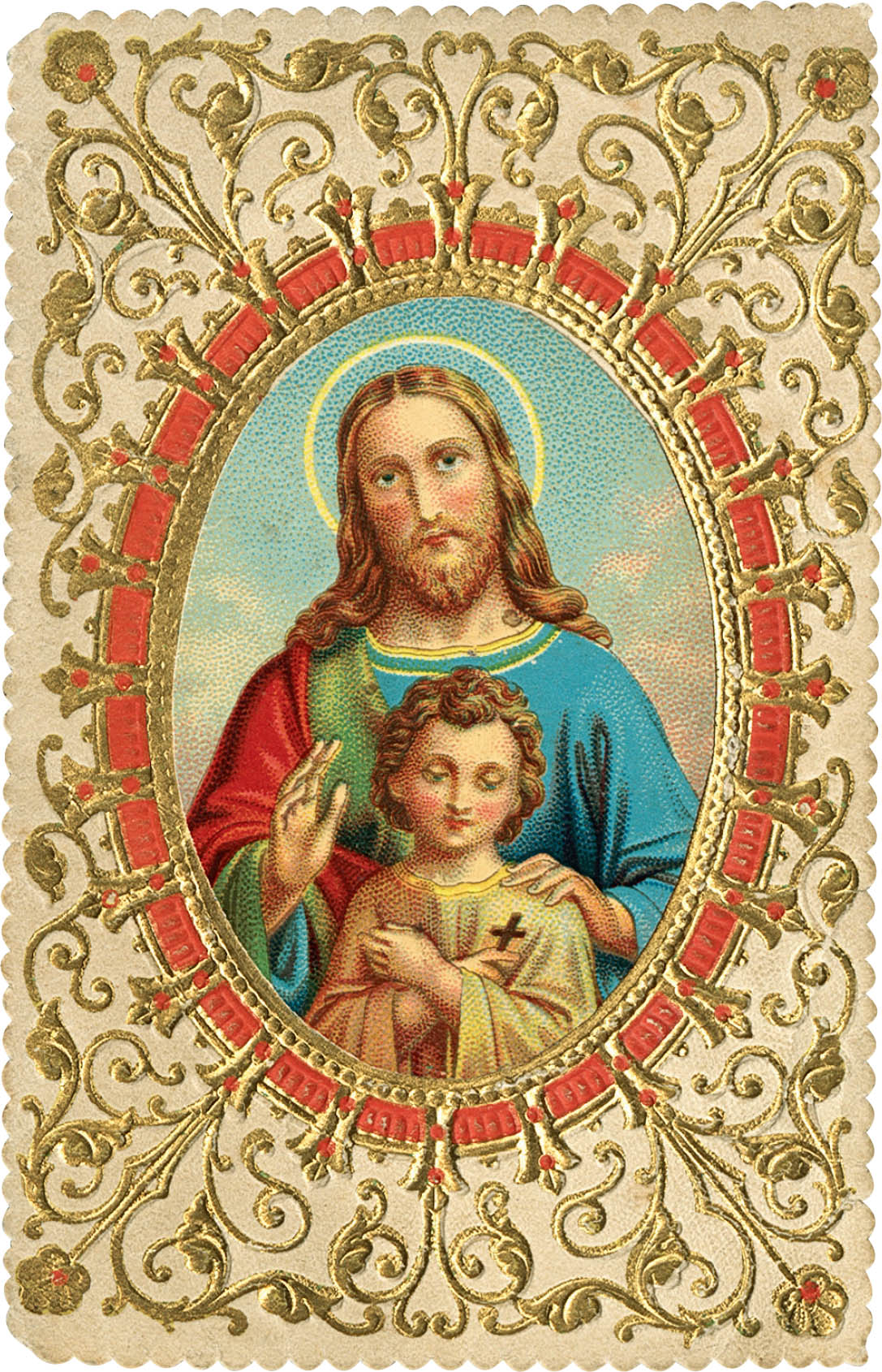
HAIL MARY

Hail Mary, full of grace, the Lord is with thee; blessed art thou among women, and blessed is the fruit of thy womb, Jesus. Amen.
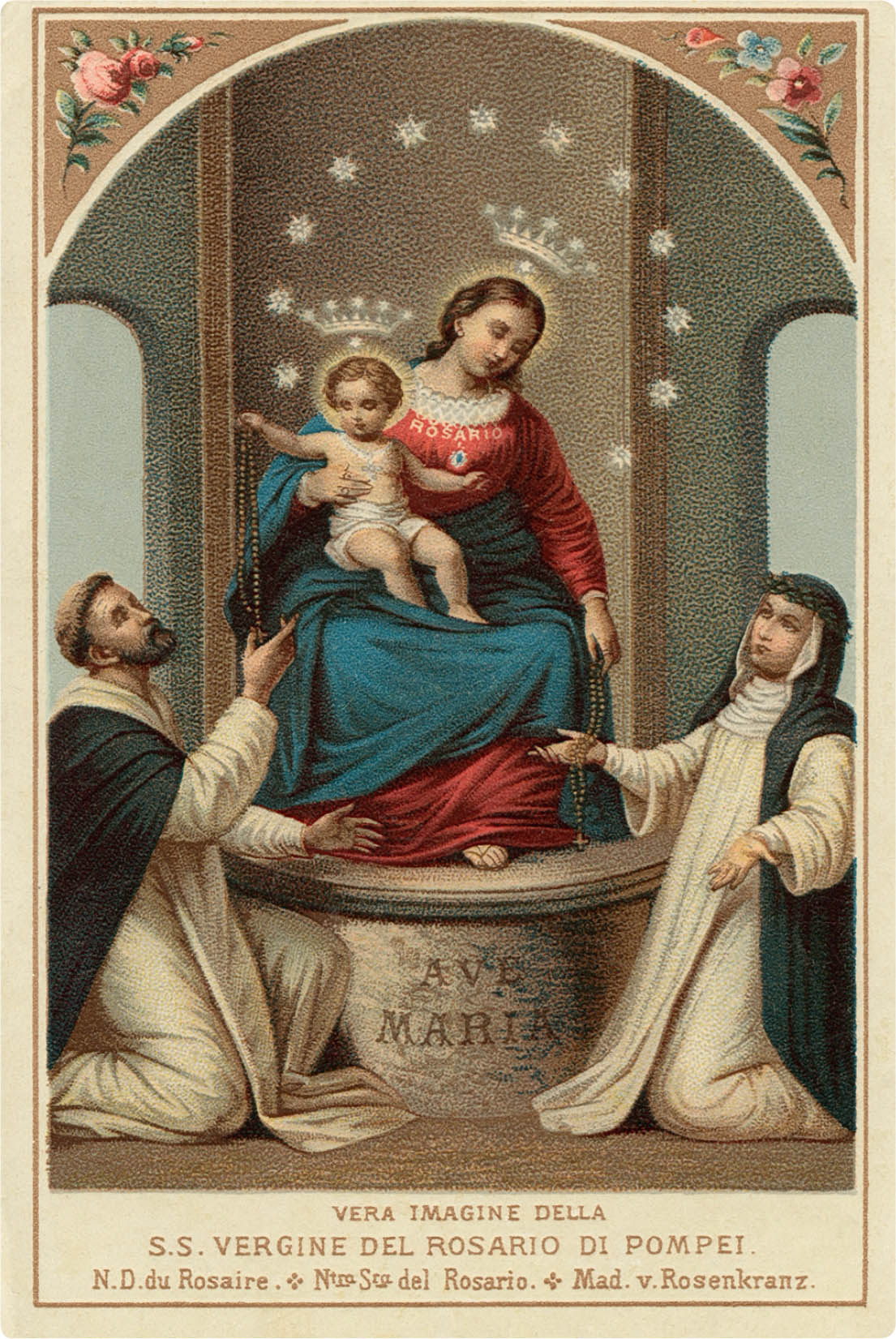 Next page
Next page










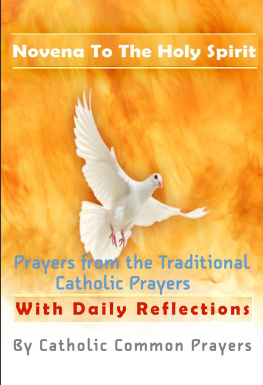

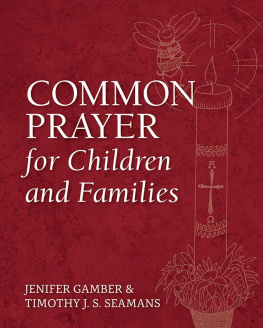





 First published in the United States of America in 2018
First published in the United States of America in 2018


 Prayers to Mary, such as the Salve Regina, came into the liturgy quite late: the Church made veneration of the Virgin Mary official practice with the Council of Ephesus in the fifth century, consecrating her as the mother of God. She is recognized as the mother of the Church, for she carried and gave birth to the Son of God. At the Annunciation, the angel Gabriel spoke to her with the words that begin the Ave Maria, I greet you, Mary. As the mother of Christ, whom she gave to the world to become a sacrifice, and because of the suffering that he endured, she has compassion for the suffering and needs of believers, and intercedes on their behalf with God.
Prayers to Mary, such as the Salve Regina, came into the liturgy quite late: the Church made veneration of the Virgin Mary official practice with the Council of Ephesus in the fifth century, consecrating her as the mother of God. She is recognized as the mother of the Church, for she carried and gave birth to the Son of God. At the Annunciation, the angel Gabriel spoke to her with the words that begin the Ave Maria, I greet you, Mary. As the mother of Christ, whom she gave to the world to become a sacrifice, and because of the suffering that he endured, she has compassion for the suffering and needs of believers, and intercedes on their behalf with God.
